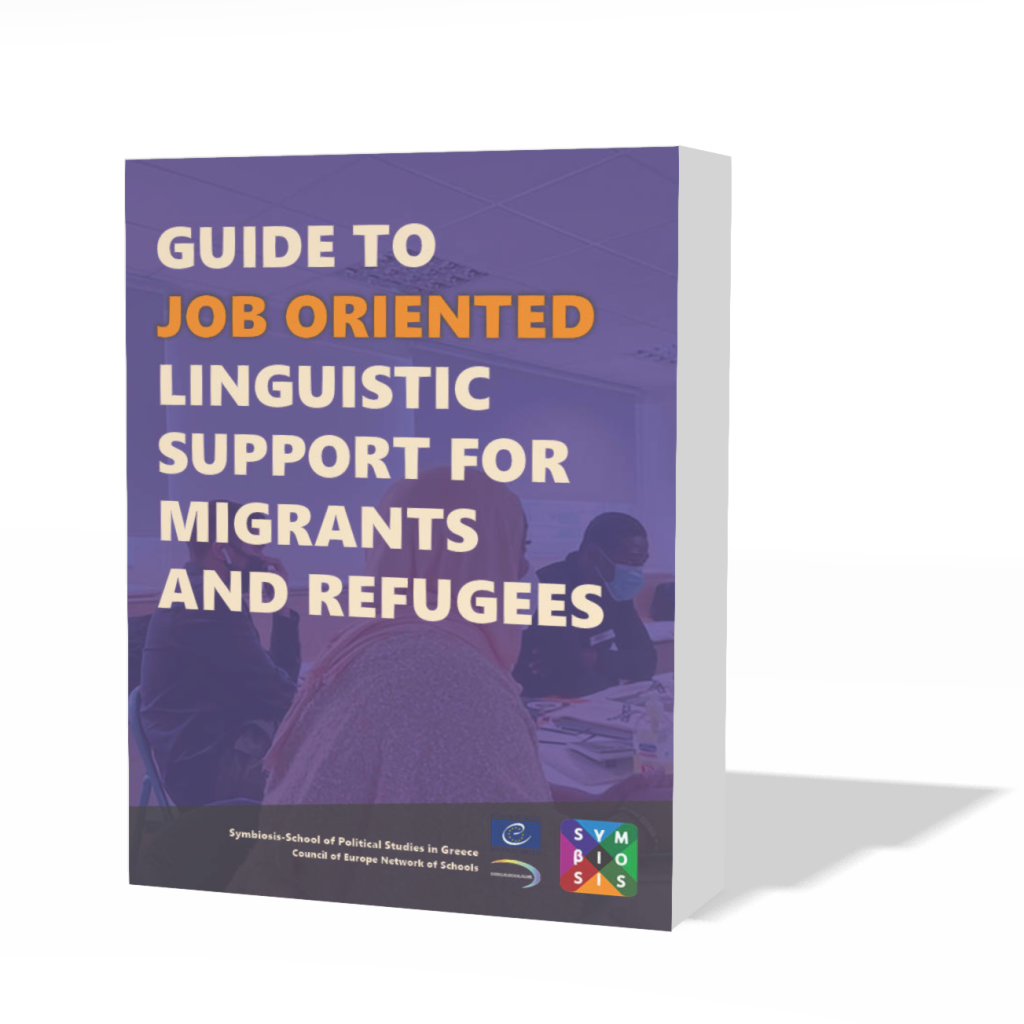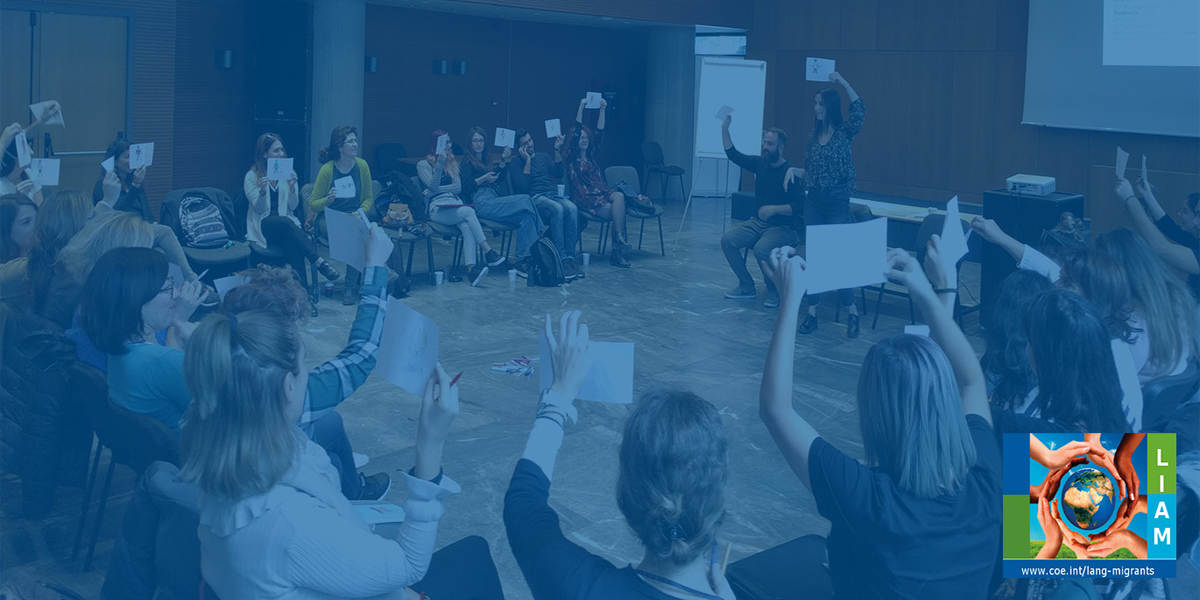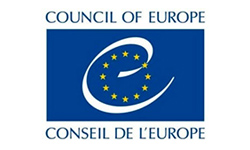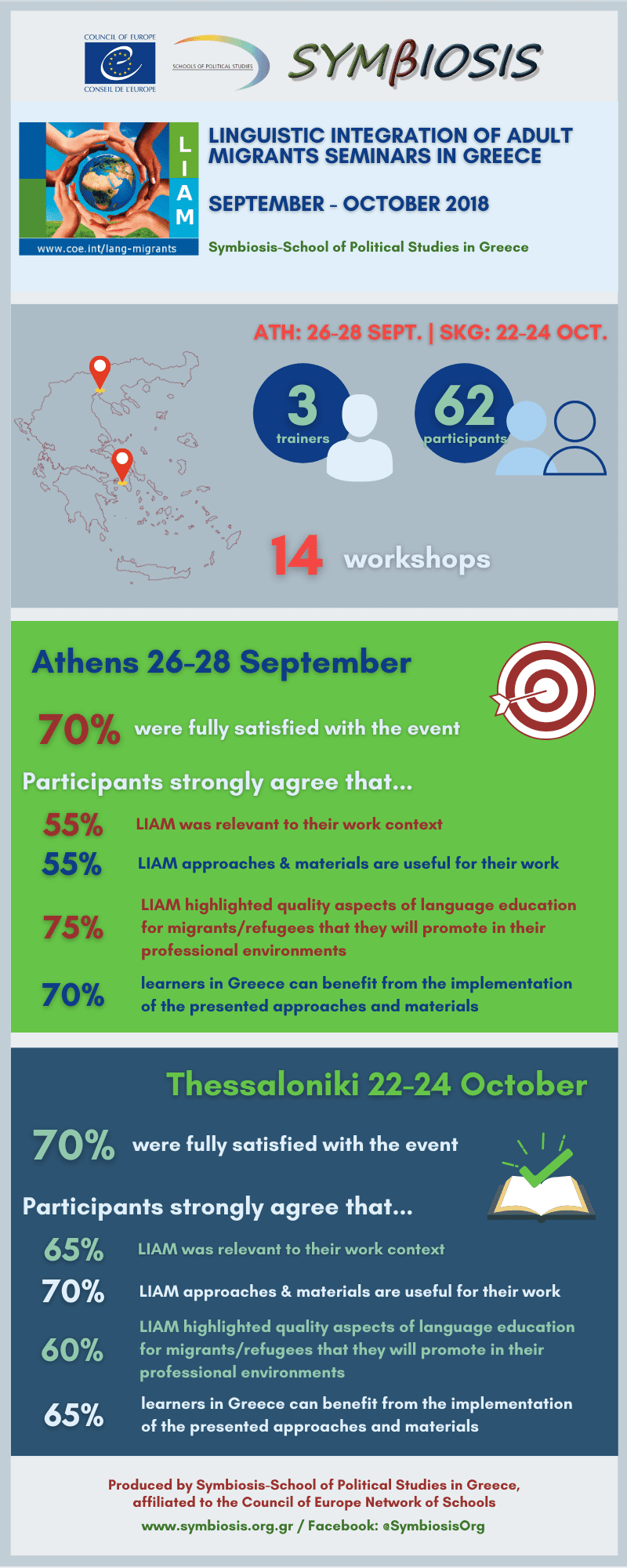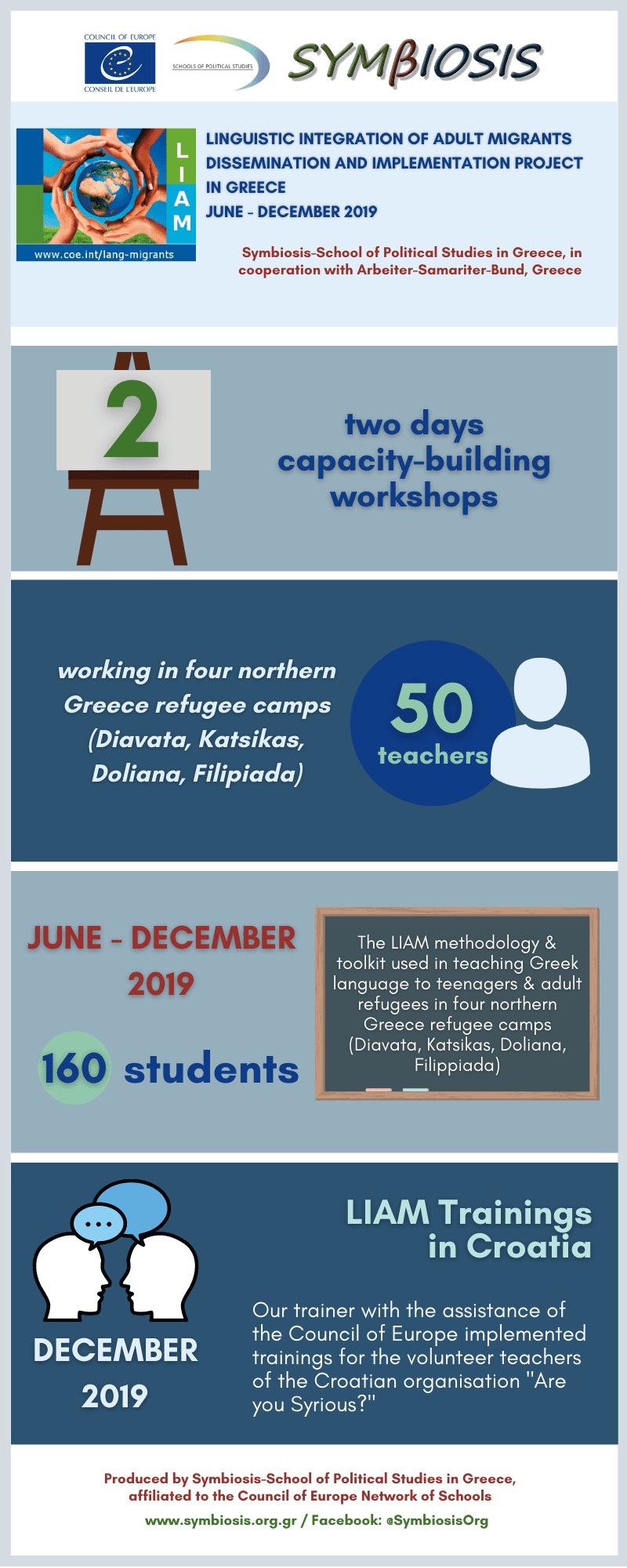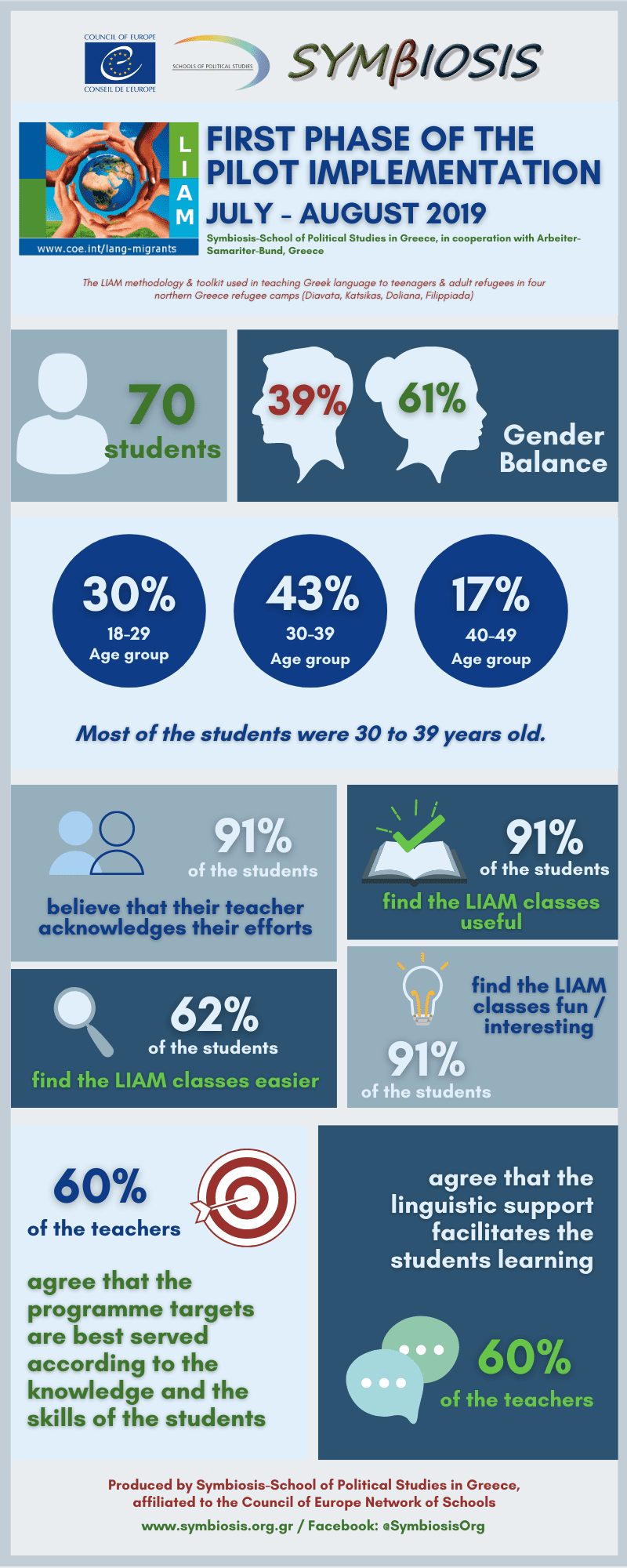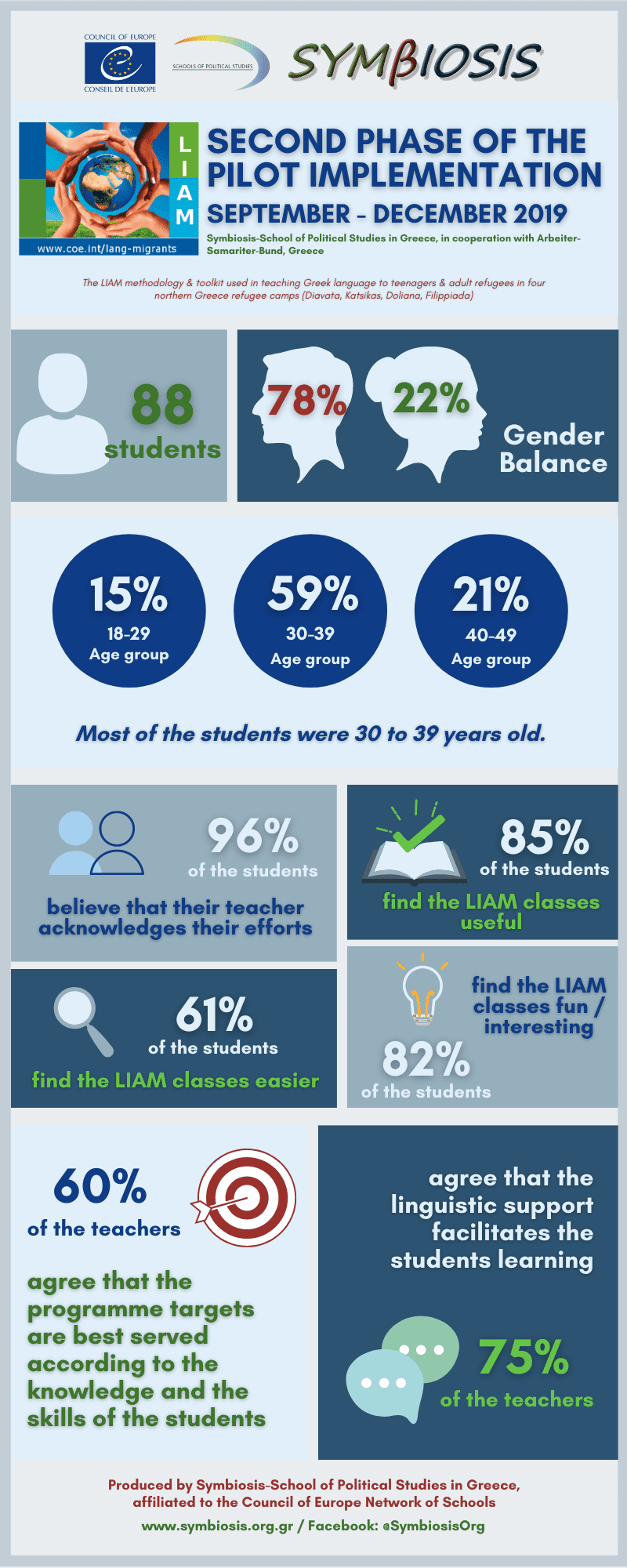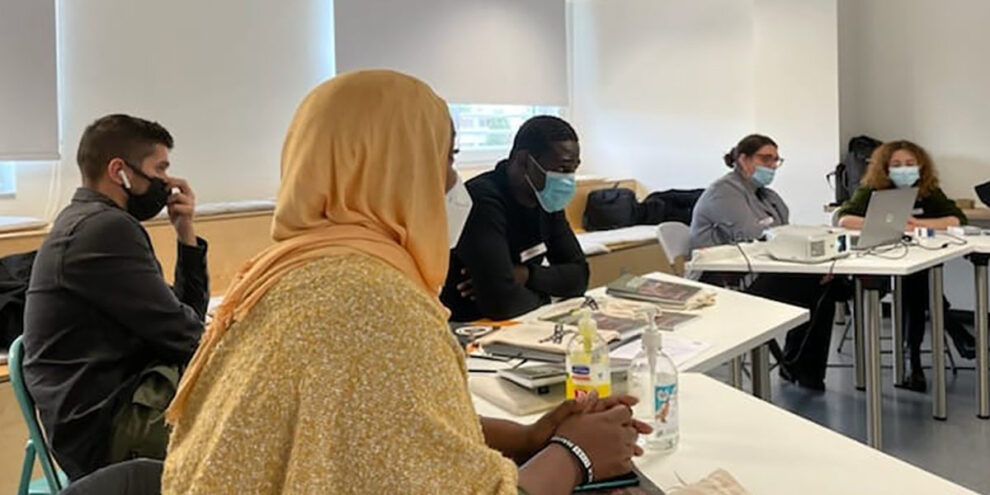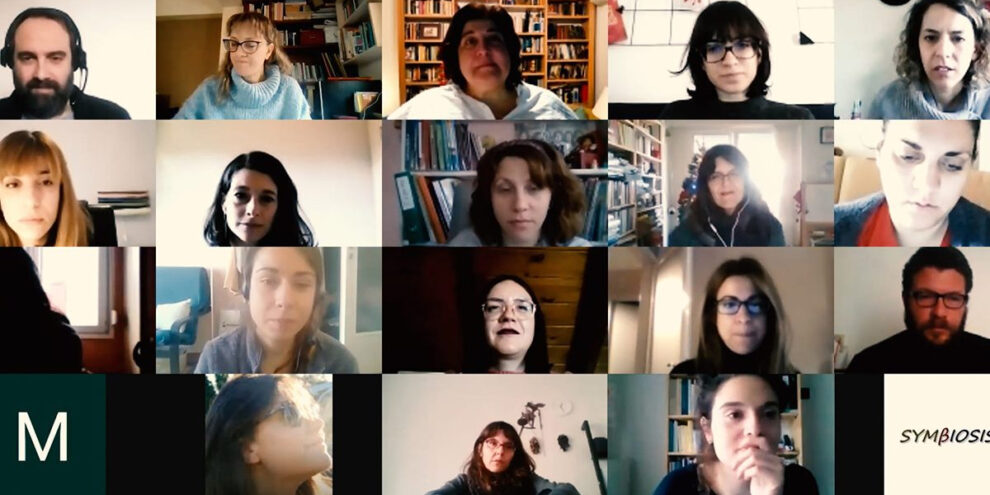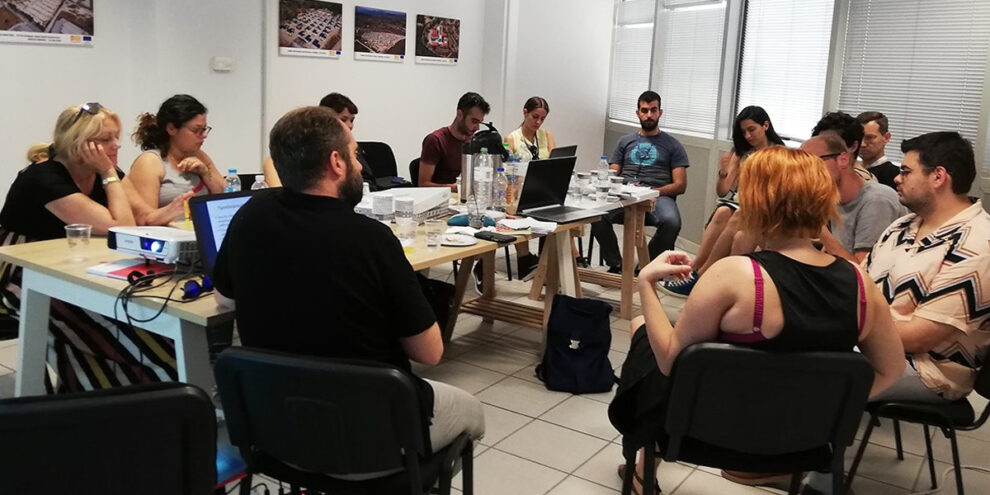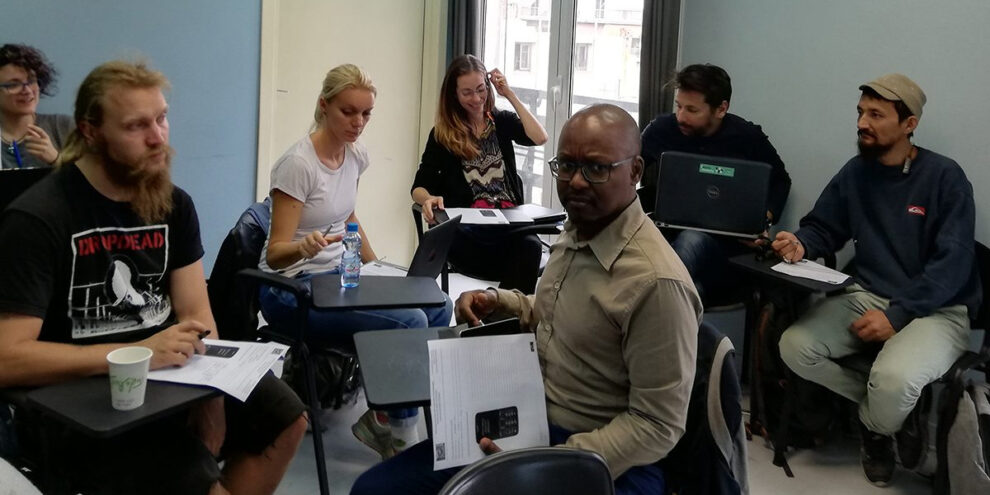Since 2018, Symbiosis-School of Political Studies in Greece, affiliated to the Council of Europe Network of Schools, has been engaged in promoting in Greece the Linguistic Integration of Adult Migrants (LIAM) Toolkit to educators in formal and non-formal education working with migrants and refugees in schools, camps or support centers, through the implementation of seminars, workshops and dissemination activities in Athens, Thessaloniki and Ioannina. In 2019, Symbiosis took a step forward by carrying out a teachers’ capacity-building and language education implementation project testing LIAM Toolkit and methodology as a methodology for the linguistic integration of the refugee and migrant adult population, from June to December, in co-operation with the organization Arbeiter Samariter Bund in Greece. During November and December 2020, visibility and dissemination activities took place, including two online events, more concretely a showcasing LIAM capacity-building webinar and an online LIAM national awareness event, as well as a social media information campaign. In 2021, Symbiosis implemented the the project ‘LIAM Labour Linguistic Integration 2021 (LiLaLI 2021)’ which aimed to respond to the challenging work environment of the migrant population under the vision of protecting the human rights of a democratic state governed by the rule of law by developing and piloting a Language Support Guide for Work, the 58th tool of LIAM’s toolkit.
Language is a central issue arising across the plethora of issues related to migration, integration and social cohesion – especially in regard to migrant access to education. The Council of Europe toolkit for Linguistic Integration of Adult Migrants was designed by the Education Policy Division’s Language Policy Programme to provide practical and free support to NGOs, national and regional bodies involved in language support to refugees. The level of adult migrants’ communicative competencies in the host country’s language(s) play a vital part in responding to the challenges raised by migration and integration of migrants in the host community. It is important to note that, despite the importance of language, obstacles to integration are much more complicated than migrant language competencies.
Videos
Publication
